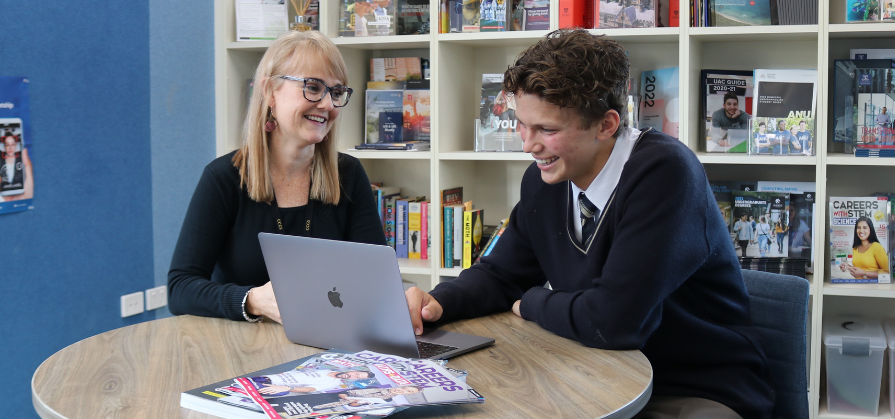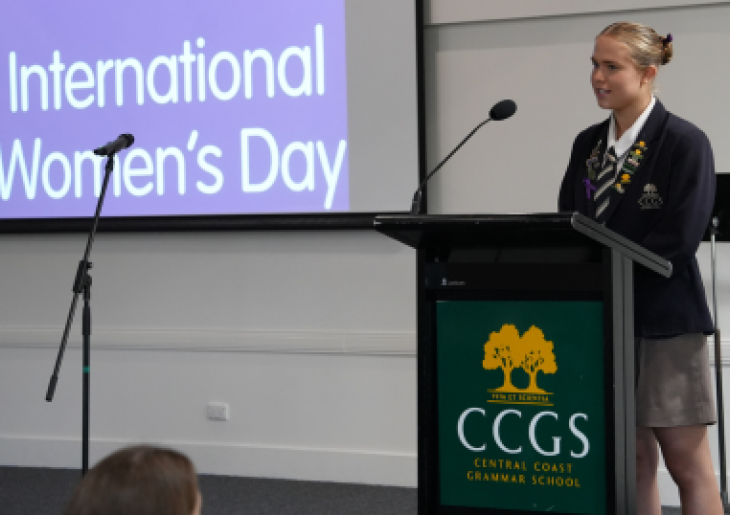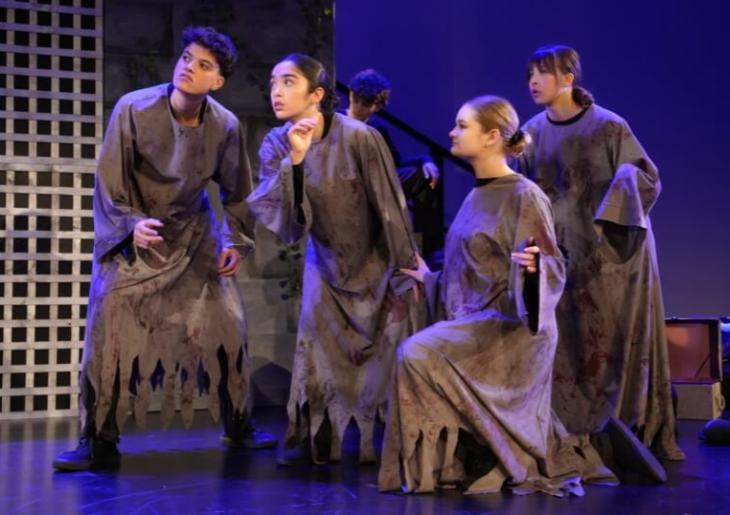Future pathways

“You can make it happen.” It’s a catchphrase well used by Mrs Emma Henshaw, CCGS Careers Advisor.
CCGS students leave school armed with valuable educational experiences and ambitions, but it is the innate desire students have to seek out opportunities and take on challenges that drives Mrs Henshaw in her role as Careers Advisor. She shares her insights into the process of working out what you want to do post-school and what makes careers education at CCGS so special.
How does CCGS support students to determine their pathway after school?
There’s something truly special and inspiring about listening to young adults talk about where they see themselves in the future. There’s an observable moment when you can see students have formed real-world connections between their much-loved classrooms and their future. I’ll often hear confessions like, “I actually really enjoyed learning about nano-technology last week!” This is at the heart of careers education at CCGS – a program that is centred around how we can best uncover and support our students’ passions, interests and unique strengths. It’s not a ‘one size fits all’ approach.
What is unique about careers education at CCGS?
One-on-one interviewing is key. Before students leave us, they have spent many hours in my office! Holding a mirror and examining what they know about themselves helps guide the next steps. Do they enjoy working with others in teams? Do they feel happiest when they are inside or outside? If they are interested in health, do they see themselves in the lab or at the front line working with people? We dive deep and uncover what makes our students tick.
Students also have access to virtual tours of universities, day-in-the-life interviews with young professionals from a vast range of industries, videos, podcasts and even virtual work experience projects.
What preparation do students undertake for life after school?
Before they reach the ‘pointy end’ of Year 12, they have spent considerable time being involved in leadership programs including the week-long My Future Self conference in Year 10. They also experience retreats, expos, mentoring, guest speaker workshops and creative problem solving projects like the Festival of Big Ideas. It’s the richness of extra-curricular programs on offer at CCGS that gives our students the time to practise their best selves and reflect on their unique fingerprint. A heartening aspect of my role is that students regularly say to me, “I want to do something where I can help people.”
What are universities looking for?
Tertiary institutions, traineeships and vocational education are seeking high school graduates who are agile thinkers that can demonstrate trans-disciplinary knowledge. Many universities have introduced mandatory, cross-faculty problem solving subjects that involve partnerships with industry. Six month work placements and internships are becoming increasingly common within undergraduate degrees, thereby substantially increasing employability. Each year we invite CCGS alumni to share their journey directly with our students. These stories often epitomise agile thinking and the non-linear nature of careers, demonstrating the reality that subject expertise is not a recipe for success in your working life. This modelling is a critical part of careers education at CCGS. It is incredibly empowering for students to envisage themselves in their near future – studying, working, pursuing exchange opportunities, seeking internships, volunteering and connecting with industry.
Last year over 70% of Year 12 received an early offer to university or college before the HSC results had come out. What makes CCGS students attractive candidates?
The school has a recognised focus on leadership, community engagement and global citizenship – from Kindergarten to Year 12. Along with high academic achievement, our students consistently demonstrate a long-standing record of extra-curricular activities, voluntary work, leadership and teamwork. Those who take full advantage of the opportunities available throughout the school are rewarded when they seek access to tertiary institutions.




